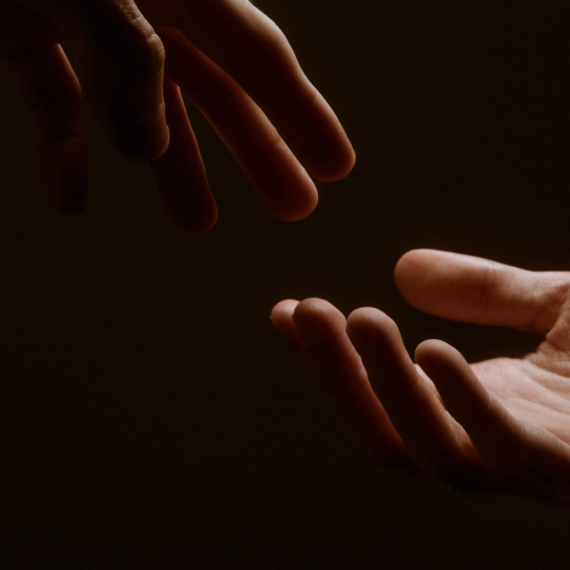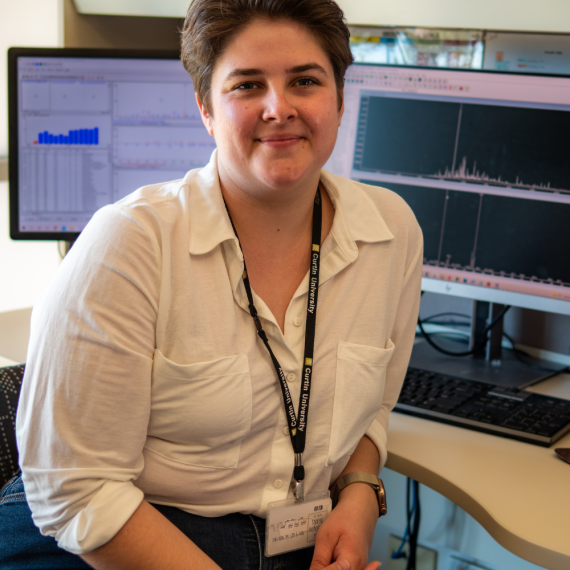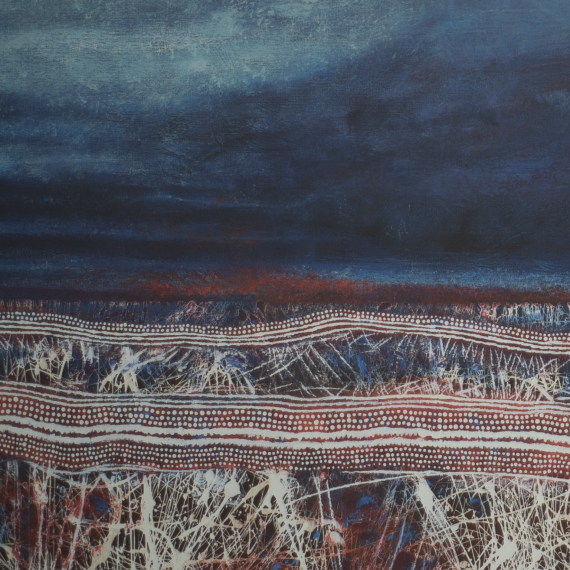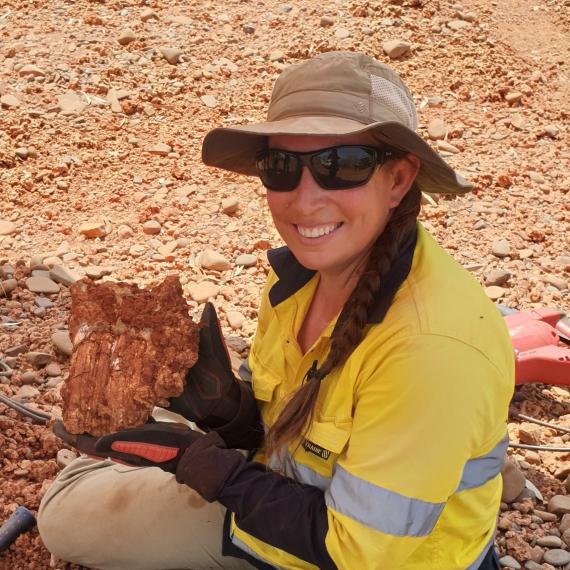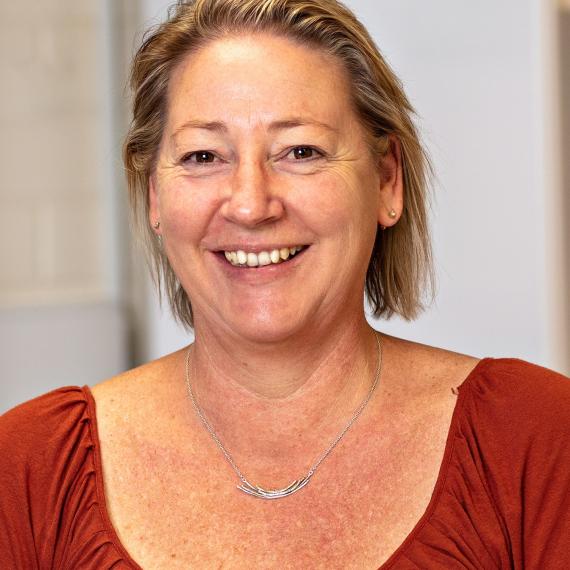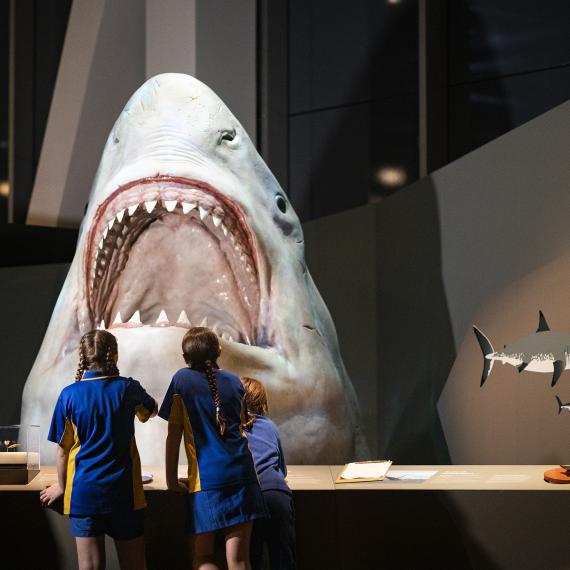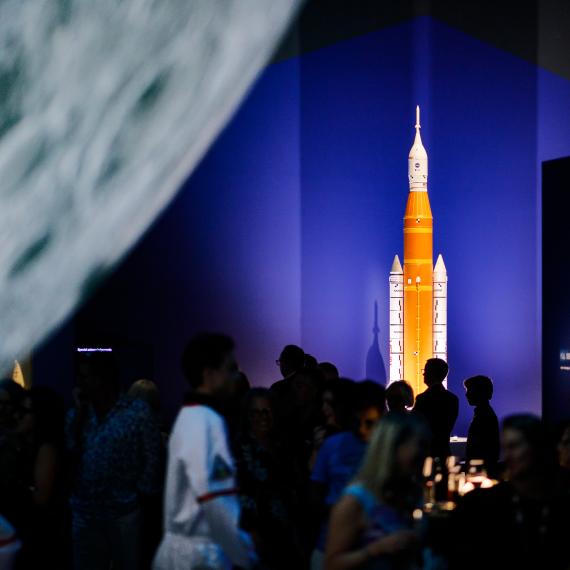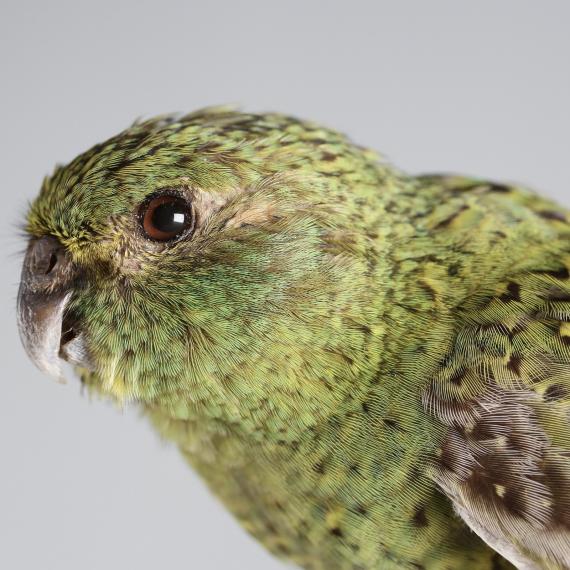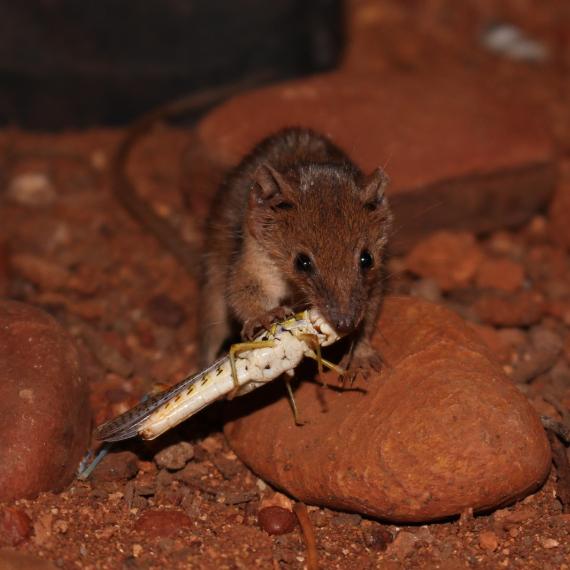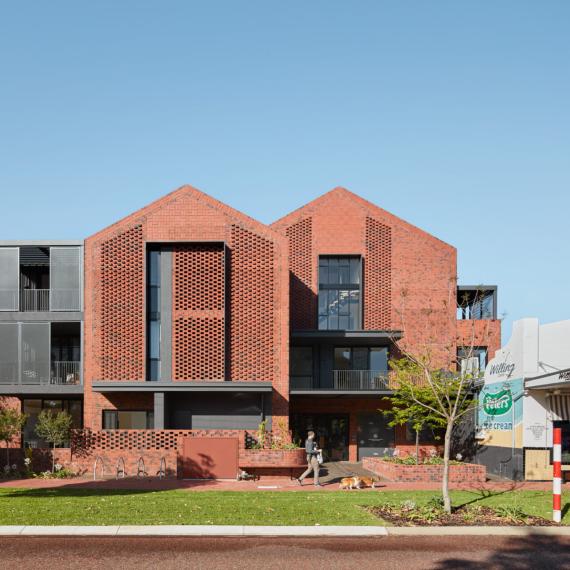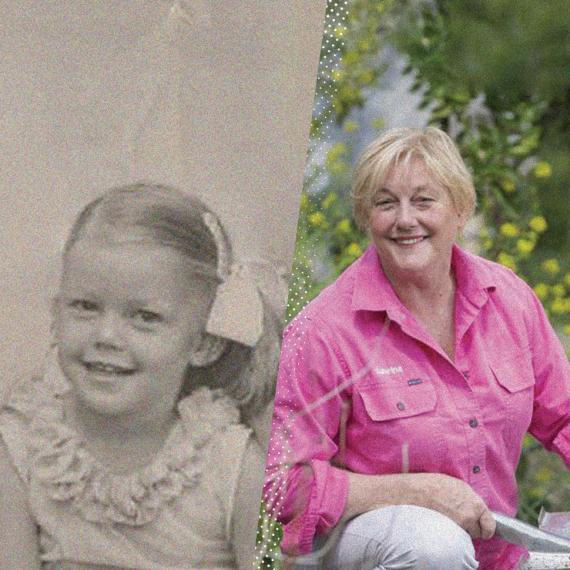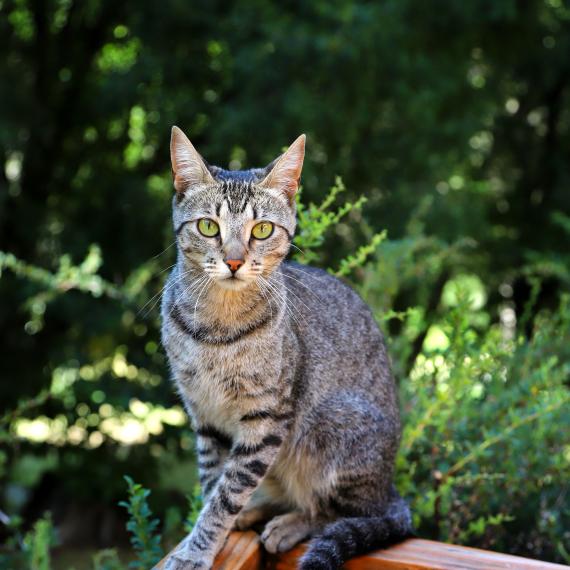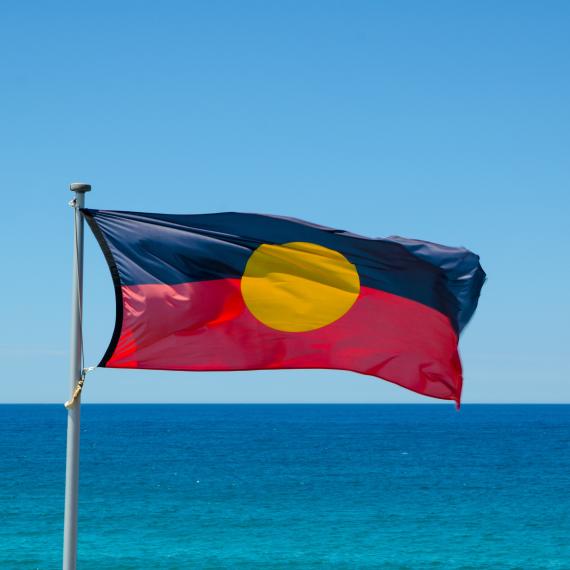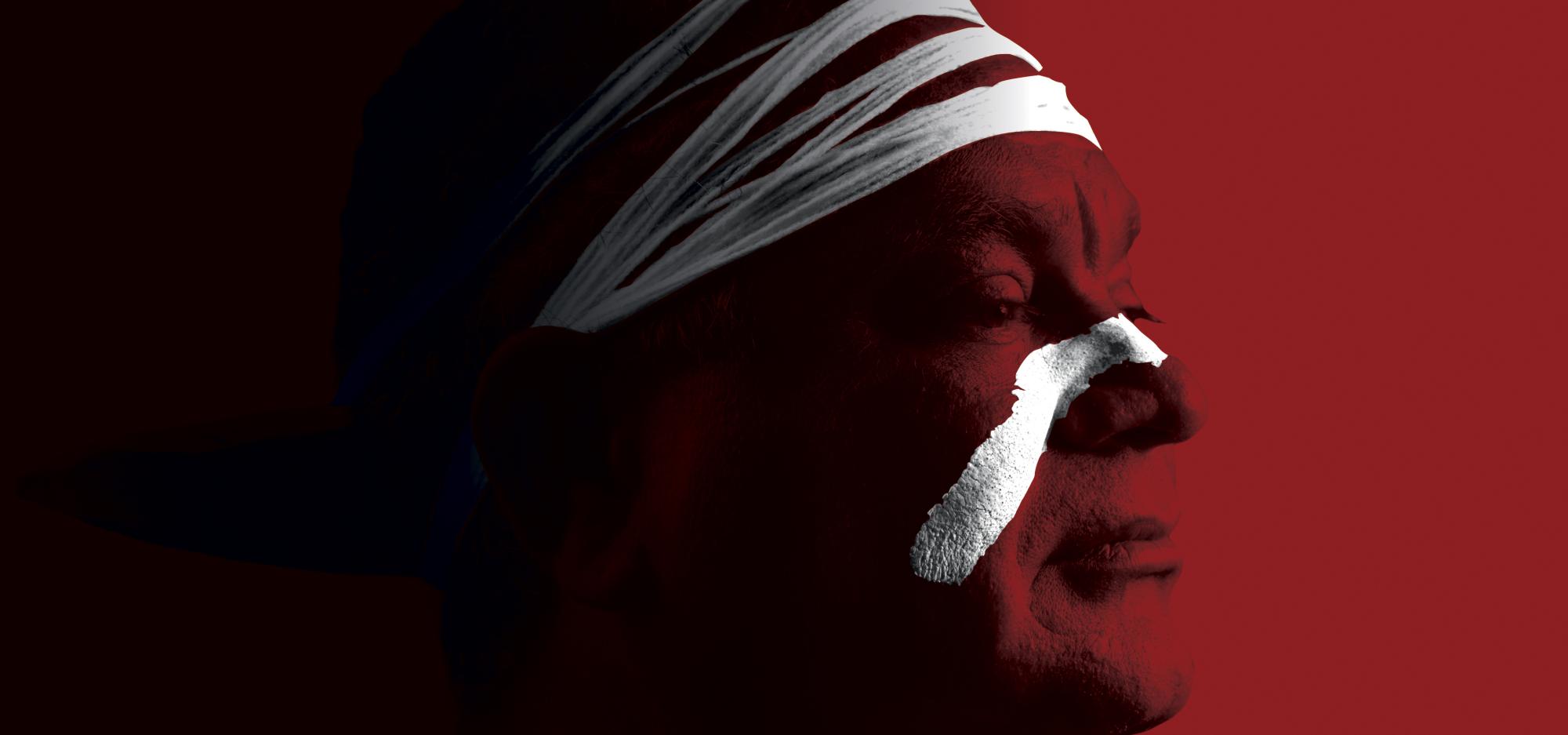
In Conversation: Some People Want to Shoot Me
Discover the remarkable story of Wayne Bergmann, a Nyikina man and Kimberley leader who has dedicated his life to his community, in this moving memoir of living between two cultures.
As a Nyikina man who straddles both traditional and modern cultures, Wayne Bergmann became widely known for his role as the head of the Kimberley Land Council when tensions surrounding the proposed James Price Point gas hub peaked over a decade ago. Bergman has faced criticism and condemnation but remains unwavering in his commitment to his community and their needs, playing a crucial role in shaping the future of the Kimberley region. He has worked tirelessly to promote independent Aboriginal economic development and reclaim what has been lost due to racism and discrimination.
Join Wayne Bergmann and Co-Author Madelaine Dickie as they discuss the story of a prominent Aboriginal leader who has often paid a high price for sticking up for his people.
This event was proudly presented in partnership with Fremantle Press.
Panel
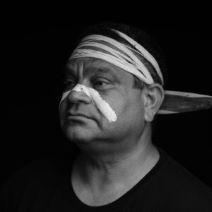
Wayne Bergmann is an Indigenous leader from the Kimberley region. He is recognised as one of Australia’s leading advocates for Indigenous self-determination through economic empowerment and opportunity, specialising in native title and mining negotiations, capital and business structuring. Bergmann is a Nyikina man, boilermaker-welder, lawyer and entrepreneur. He has served as Executive Director of Kimberley Aboriginal Law and Culture Centre, as well as CEO of the Kimberley Land Council and KRED Enterprises Charitable Foundation. Bergmann was proud to have chaired the Expert Indigenous Working Group for the Coalition of Australian Government investigation into Indigenous Land Administration and Use. He is currently Managing Director of Leedal Foundation, an Indigenous enterprise that operates hotels, pubs, a supermarket and a mechanic vehicle servicing business; serves as Executive Chairman of National Indigenous Times, Australia’s largest independent media news business; and is a Professor of Practice at the UNSW Business School of Management and Governance.

Madelaine Dickie loves to write, loves to surf and loves fishing with her hundred-pound handline. In the last twelve years, she’s wandered and worked in Jakarta, Broome, Wyndham, Tokyo, Exmouth and Arnhem Land. In 2022, she took off on an eight-month surf drift through Mexico with her husband and eighteen-month-old son. They had a pistachio-coloured Nissan. The car’s transmission blew just shy of a mountain pass boobytrapped with bandits. A week later it caught fire at a border crossing. When Madelaine takes a break from living dangerously you can find her at the desk, writing. Her debut novel Troppo won the City of Fremantle Hungerford Award and was shortlisted in the Dobbie Literary Awards and for a Barbara Jefferis Award. Her second novel Red Can Origami was written with the assistance of an Asialink Arts Residency at Youkobo Art Space in Japan. She’s won a Prime Minister’s Asia Australia Endeavour Award, an Illawarra Mercury Journalism Prize and has twice been shortlisted in the Western Australian Premier’s Literary Awards. In addition to writing novels and non-fiction, Madelaine has served as editor in chief of National Indigenous Times and spent over ten years working for Traditional Owner-led organisations as a graphic designer and media officer. She’s currently a Director of The Skill Engineer, a bold social enterprise that’s creating purposeful futures for young people.
-
Episode transcript
Speakers: Wayne Bergmann, Madelaine Dickie
[pre recorded introduction] Welcome to In Conversation, a series brought to you by the Western Australian Museum Boola Bardip. In Conversation is a safehouse for difficult conversations and passionate and thought provoking public dialogs that tackle big issues and difficult questions, led by some of the most brilliant minds. In Conversation is recorded on Whadjuk Nyoongar boodja. The Western Australian Museum acknowledges and respects the traditional owners of their ancestral lands, waters and skies.
AA: Thank you for joining us here in Boola Bardip to celebrate the launch of Some People Want to Shoot Me by Wayne Bergmann and Madelaine Dickie. I'm Alex Allan, the CEO of Fremantle Press, and on behalf of the press, I acknowledge the Whadjuk Nyoongar people, the traditional owners of the land where we meet, and pay my respects to elders, past and present.
I'd also like to acknowledge any Nyikina people or Kimberley Aboriginal people who've travelled down to be here tonight. Its great to have you here in this absolutely stunning venue. It gives me great pleasure now to hand over to Robyn Collard, a Whadjuk Nyoongar Balardong woman and a renowned cultural leader and educator, and her grandson Tryse Rioli, a Noongar, Tiwi and Larrakia man.
[Nyoongar Welcome to Country ceremony performed and spoken in Nyoongar language – including sounds of clapping sticks, digeridoo]
RC: Kaya, wandjoo wandjoo nidja. Marmum, ngoonis, yorgas, djookin, boordiyas [unknown] nyininy, nih [unknown] wangkiny nidja Boorloo Boola Bardip. Hello and welcome here to Perth. Men, women, brothers, sisters and most of all our leaders [clapping sticks sounds]. Koolangka nidja. I think I did see some children here this evening as well, so welcome koolangkas, hello and welcome.
What an honor to be asked to deliver the Welcome to Country here this evening for the launch of Wayne Bergmann's book. A Nyikina man who is here to share his story. [clapping sticks sounds] nidja Boorloo, Matagarup, Derbarl Yerrigan, Maarli Biyla, Kaatagarup Geenunginy Bo, Kaatakoomba, nidja Walyalup, Wadjemup, Derbarl Nara, Meeandip, Biyla Walyabup nidja. Dyarlgarra, Katamoorda, Mandoon, Djoondalup [unknown] Boorloo. I’ve just taken you around the metropolitan area, with some of the most important places that are here in Whadjuk country.
You are sitting in Perth. To my right there is Matagarup – the river crossing where the water comes to the top of your leg. In the past, our ancestors would cross from the north to the south, along with the karl – the campfire, the smoke – asking for permission to cross the river. You couldn’t go until you received that smoking ceremony from the other side of the river, knowing it was safe to cross [clapping sticks sounds]. This is at Heirrison Island, which is a well known women’s birthing area. Before, we come here to Boorloo and we pass and go to Kaatagarup, Kaatakoomba Geenunginy Bo. You might know it is as Kings Park, because you’re standing at the top of the hill and looking out and seeing all of these kwobidak boodja – all of these beautiful places in the distance [clapping sticks sound]. We travel down that beautiful Swan River until we come to Walyalup – Fremantle- the home of Waalitj - the eagle. Also the little Woylie - The marsupial rat kangaroo which was abundant in the early days. Before we cross the ocean to Wadjemup, and for healing to happen [Nyoongar language spoken] we need to hear and share the truth-telling stories of Wadjemup. For us to heal and be one on this land.
We then cross further south the Derbarl Nara. You might know it as the Cockburn Sound [Nyoongar language spoken]. The hunting grounds for Nyoongar people in terms of fish, the lobster, the crabs and also the swimming. Even though we’re in the season of Djeran, its still quite warm. We haven’t had any rain for quite a while [clapping sticks sounds]. We need to know because the seasons, the land, the boodja, nidja waangkiny noonookan – the land speaks to us and tells us what is happening.
We then come to Walyabup – around the Jandakot area and the place of Bilya - the suburb of Beeliar. This is where the water runs underground, and its our drinking water. It nourishes not only the land but us, the plants, the animals. We come to Dyarlgarra – the Canning River – that then flows towards the base of Kaarta Moorda – known to Nyoongars as the Black Hills, or the Darling Ranges. Mandoon – the place of many trees around that Midland/Guildford area, before we go north up to Djoondalup and back here. We are sitting, listening to one another here in Boorloo, at Boola Bardip. The place of many stories.
One story has been shared this evening by our friend Wayne. We can tell the story and sometimes by telling the story it will change. However, when we write the story it is there in print, for us to share. We can go back, write notes in – oh yes I remember that place, what happened here – these are the stories that we can tell one another. If we don’t share the story, we lose the story, we lose it, so we’ve gotta keep sharing our stories.
[Nyoongar language spoken] Our place, our stories, our land. It is imprinted with the memories of those who’ve walked before us, and who continue their stories in our memories. This is one memory I’m sure that will live on, and theres plenty to share I’m sure Wayne. In your wonderful journey of life. I will ask Tryse to play the Yidaki as we travel out from this Welcome to Country. We ask that those wonderful, good spirits be here as a part of this wonderful launch this evening.
Nidja moorditj [didgeridoo and clapping sticks play]. Thank you.
AA: Thank you Robyn and Tryse for what was a beautiful and evocative welcome and I think we all feel so privileged to live here where we do. Theres a lot of special guests here tonight and I’m going to start by acknowledging a few of those. First – the honourable Roger Cook – the Premier of Western Australia and Minister for Industry, Jobs and Trade, Public Sector Management and Federal/State relations. Welcome.
The honourable Steven Dawson – minister for Emergency Services, Innovation and the Digital Economy, Science, Medical Research. The honourable Neil Thompson -shadow minister for Treasury, Environment and Legislative Council. Fiona Hunt, the deputy Director General of Aboriginal Engagement and Premier Cabinet, and Carol Martin the former member of Legislative Assembly of Western Australia.
I’d also like to welcome and acknowledge Geoff Haerewa – the deputy president of the Shire of Derby, West Kimberley. John Watson – the founder of the Kimberley Land Council, Anthony Watson – chair of the Kimberley Land Council and all the representatives from the Kimberley Land Council who’re here tonight. Also Robert Watson, a senior Nyikina man – executive chairperson of the Walalakoo Aboriginal Corporation, who I believe was also mentioned in the book.
Nolan Hunter, co-chair of Reconciliation WA. Patrick Green the chair of the Leedal Foundation. Sally Carbon – the chair of St John of God and our own Fremantle Press chair, Claire Medhurst and members of the Fremantle Press board.
Of course, welcome Wayne Bergmann and Madelaine Dickie, their friends and family. It’s so wonderful to have you all here and to know that you represent so many others who wanted to be here but couldn’t make it. I know a lot of your have come a long way tonight, so we’re so delighted to see all your faces here tonight.
I’m just going to say a few very quick words before I hand you over the Premier who’ll launch the book. You’ll then have another chance to grab your copy of the book and have it signed. Then Wayne and Madelaine are going to be back up here to talk more about the book, and they’ll take you behind the scenes of this memoir and give you a glimpse of what it means to be an Aboriginal leader in this country.
Just a little bit about Fremantle Press… we are WA’s own book publisher. Our books are distributed and sold here – physically here tonight – but also nationally and overseas. We’re also a not-for profit organisation. Its our mission to publish and share stories that represent the diversity of people and places that make up our unique state. We believe that our stories matter and that by sharing them we can encourage dialogue, understanding of different perspectives, inquiry and cultural enrichment in our regions. Books really do make a difference.
Wayne’s story so deftly captured by Madelaine Dickie is both personal and general. It shares Wayne’s journey and adds to the many stories of the Kimberley. Stories that epitomise the resilience and strength of Aboriginal people.
There’s no finer of example of a book that does exactly what a book should do, than Some People Want To Shoot Me. With so much said about the Kimberley, at Fremantle Press we thought it was important to hear directly from leaders like Wayne. This enables readers to walk a mile in his shoes, and that’s what a really great book does. That’s one of the many things that a great book does. The benefits of reading is helping us to build empathy, tolerance and understanding eachither.
In writing this story, Wayne gave himself a chance to reflect on the meaning of his life and work. To take stock and to say this is where we come from, and this is where we would like to go. That might sound incredibly simple, but its actually vital. We have to examine and understand our past, if we’re going to better imagine our future. Wayne made an absolutely brilliant decision when he chose his long-time friend and employee Madelaine, to help him bring this book to life.
Their mutual trust and respect for the perfect foundation, for the conversations and the writing that became Some People Want To Shoot Me. We’re enormously proud to be the publishers of this book, and we believe Wayne’s story will give readers right around the country an insight into the lives of Aboriginal people of the Kimberley. They’ll respect both what they’ve endured and what they’ve achieved.
To launch the book officially, I’d now like to introduce our Premier – Roger Cook [applause]
RC: Thank you Alex. Its an honour to be here and I’d like to thank everyone for the opportunity to join you. Can I also begin by acknowledging that we are on the lands of the Whadjuk Nyoongar people. Always was, always will be. Let us take an opportunity to acknowledge their elders past and present, and give thanks for sharing this incredible country.
Can I thank Robyn and Tryse for their welcome. It certainly provides a great blessing for this important occasion. I’d also like to acknowledge some parliamentary colleagues and former colleagues here tonight. The honourable Steven Dawson - my cabinet colleague - and the honourable Neil Thompson. Can I acknowledge former members of parliament who I believe are here tonight. I know one of them is, the legendary Carol Martin and Zak Kirkup.
Alex, thank you very much for welcoming.. oh hello! I didn’t see you all there, that’s nice too! It was very solemn for a while there wasn’t it. (laughs). Can I also acknowledge Alex and all the staff from Fremantle Press. You do important work, telling important stories for Western Australia. None more important than the book we’re launching this evening.
Can I also take the oppurnity to ackledge Wayne and Madelaine. Thank you. Thank you for an important step. Wayne, thanks for living your life and Madelaine thank you for bringing it to life. Its such an honour to be here at Boola Bardip, in the heart of Boorloo to really celebrate this life so far lived.
Some People Want to Shoot Me – it’s a confronting title that begs the question “why?”. I’ve known Wayne for over 20 years now, and I know that the matters that Wayne has involved himself in, to go to core of the divisions that have existed in this country since colonisation, puts him in that obvious space of conflict. Land rights, environmental protection, cultural protection, racism, economic empowerment for Aboriginal people – Wayne has never backed away from seeking solutions to these challenges. Naturally, creating lasting change, going against the grain, sometimes people don’t like that.
Occasionally, people resort to threats to protect their interests. That’s never deterred Wayne. Its inspired him and driven him on. Can I just say from the outset – Wayne is a man of many talents. A man of deep cultural knowledge and appreciation. A boilermaker, a lawyer, a CEO, a newspaper owner – one of just two in this state (audience laughs). A father and like yours truly, a retired rugby player.
When I first met Wayne - which must’ve been in 2000 or 200 – he had just succeeded Peter Yu as the CEO of the Kimberley Land Council. I was heading an organisation called the WA Native Title Working Group at the time, assisting land councils to continue to navigate a lot of the important pathways of realising Aboriginal land rights in WA. At our first meeting, he waltzed in with the big hat, and even bigger plans.
From that first encounter, it was clear that he was going to be an influential figure in advancing the interests of Aboriginal people in Western Australia. Wayne’s influence comes from a deep understanding. On the one hand, he’s an incredibly clever lawyer – a western education. On the other hand – even though he’s an expert in whitefella law – he’s also deeply connected in his culture. He brings the two worlds together.
It is a burden of leaders of the Aboriginal community, that they must walk in two worlds. Communicate to one, continue to be empowered by the other. He took the Kimberley Land Council from the boardroom to the courtroom to the realisation of Native Title. In fact, 97% of the Kimberley is determined Native Title land.
Back to Some People Want to Shoot Me. This book is a personal story about a deeper narrative, that runs through communities all across our nation. It’s a personal story about what happens when insitituinal structures are pushed against. It’s a personal story about the ongoing struggle to achieve economic empowerment and equally, economic empowerment and rights for Aboriginal people.
It’s a reminder that while Wayne’s experience is unique, the themes of struggle, resilience and survival remain an ongoing challenge for Aboriginal people everywhere. Wayne recently said in an article in the National Indigenous Times; “I feel very honoured and privileged to be able to reflect, and its important that more Aboriginal people get to tell their story”. Its something I think that Robyn reflected on in her welcome tonight. That is such an important thing.
These stories, these conversations are so important to shifting attitudes. Sometimes it feels like Australians hear the alarming statistics and disparities, but they don’t listen. Stories like Waynes though, make it real – make it personal. That’s what make Wayne and Madelaine’s book so important. It has the power to change minds and recognise nuance. Importantly, it also shows that you can change minds, but sometimes, you cant change them all, and that produces conflict.
But we know Wayne will always, always keep trying – so thank you [applause]
AA: Thank you Premier, for those wonderful words. And there's a strong message coming over tonight, which is how important it is to share our stories and hopefully to write them down in books and share them with the world. And that's certainly what we at Fremantle Press are here to do. So it's wonderful. I wanted to also just, mention that the book Some People Want to Shoot Me is published by Fremantle Press with support from the Department of Local Government, Sports and Culture and Industries.
And this event tonight is sponsored by the WA Museum Boola Bardip, for which we are very, very grateful. I'd also like to sneak in a very quick but very heartfelt thank you to the staff of Fremantle Press and to our board. They're here tonight, so please find them. They're the ones with the name badges. They would love to talk to you passionately about the press, about our upcoming books and events, our award nominations, our ambitious plans for the next period of our nearly 50-year history, and, of course, book recommendations. We have lots of those. But first on the list of book recommendations is obviously Some People Want to Shoot Me. So if you haven't already, head down and see our friends at Boffin's Bookstore down the end and pick up your copy. In a moment we're going to break for a little while. Wayne and Madeline will be available to do a few more signings. And then we'll be back again in about 20 or so minutes to hear from Wayne and Madeline about the book, as I mentioned earlier, how it came about. And I believe there will be an opportunity to ask some questions. So, we're really, really looking forward to an opportunity to hear from them directly. So we'll see you all back here in, approximately 20 minutes, maybe just after 6:30. Thank you all again for coming. We’ll see you soon.
GR: My name's Georgia Richter, I’m something of a control freak. I am also the Fiction and Narrative Nonfiction Publisher at Fremantle Press and it was my huge pleasure to be to do some of the editing on this amazing book, Some People Want to Shoot Me. I think the other question that the Premier left out was, who are those people? And I hope that we find out, through, during the In Conversation, perhaps. Maybe who some of those people might be. I've been really looking forward to this conversation between Wayne and Madeline. I keep wanting to ship them and call them Wadeline. And so forgive me if that happens, because I am quite excited. I would just like to formally introduce both of them to you.
Madeline is the author of two novels, both published by Fremantle Press. Her debut novel, Troppo, won the City of Fremantle Hungerford Award. It was also shortlisted in the Dobbie Literary Awards and the Barbara Jeffries Award. Her second novel, Red Can Origami, was written with the assistance of an aging arts residency at Jacoba Artspace in Japan. The accolades do not stop. She's won a Prime Minister's Asia Australia Endeavor Award, an Illawarra Mercury Journalism Prize, and has twice been shortlisted in the Western Australian Premier's Literary Awards. She also served under Wayne as Editor in Chief of National Indigenous Times, and spent over ten years working for traditional owner led organizations as a graphic designer and media officer. She's currently a director of the Skill Engineer, a bold social enterprise that's creating purposeful futures for young people.
Wayne Bergmann has been introduced beautifully by the Premier. I'll give you a potted history for those who may have forgotten in the interval and don't know him well enough, but I think that many of you do. He's a Nyikina man who's a boilermaker and welder by trade before becoming a lawyer, then CEO of the Kimberley Land Cancel, the Head of the Kimberley Aboriginal Law and Cultural Center and the owner of National Indigenous Times. This, of course, is a mere outline of his accomplishments, and I think you'll hear many more tonight. I also formed very much the sense, while I was working with him on the book, that he's a great man and also a humble man. It was such a pleasure working with you guys and watching the book come together.
And a shout out to Chris, very much the wind beneath all our wings. I gave her a big hug tonight, even though we'd not met before. She was integral to this process as well. So for you all now, I would like to hand over to these two. You can witness for yourselves the coalesce lessons of two amazing talents. It's Wadeline.
MD: Lands of the Yawuru, the Wajarri, the Nyikina, the Martu, the Gamaraigal, Bayungu, Teramangk, Bunurong, Gunaikurnai and Yuin peoples. I've traveled down from the Northern Territory, where I live in a remote Aboriginal community called Maningrida, which is in West Arnhem Land, and it's on the lands of the Dhukurrdji clan, of the Kunibídji people. Georgia, thank you for that lovely introduction. And I'd also like to thank Robyn and Tryse, who spoke earlier, welcoming us to your beautiful country here, Whadjuk Noongar boodjar. As Georgia intimated before, my name's Madeline Dickey. I'm the author of two novels, both published by Fremantle Press. Troppo, about a rogue Aussie expat in South Sumatra who's made some dangerous enemies, and Red Can origami about Australia's uneasy romance with uranium. Set against the Fukushima Daiichi nuclear disaster. In addition to my love of writing, I love surfing and traveling. My most recent trip saw our little family drive a pistachio-colored Nissan from Mexico to El Salvador and back. We narrowly avoided getting robbed by bandits on a remote mountain pass. The car's transmission blew up halfway up a volcano, and that poor Nissan finally caught on fire at a Mexican border crossing.
Mexican border crossings are terrifying when you have a toddler. It's possible that this trip will form the basis of a forthcoming horror novel. We'll see. When I haven't been traveling, I've been working with Wayne. So over the last decade I've served as Editor in Chief of National Indigenous Times. I've also worked as Media and Communications Officer at the Ambooriny Burru Foundation, which Wayne set up to pursue an agenda of independent Aboriginal economic development.
I remember when I resigned from Ambooriny Burru to go surfing in the Caribbean Wayne gifted me a boomerang, and it was one that he carved and painted. And it was a very symbolic gift because when he gave it to me, he said, this is so you come back. And I did come back. And for the last four years we've worked together on this incredible story.
So for some of you Wayne needs no introduction, but I guess just building on what Georgia said and what the Premier said earlier as well. I think Wayne’s most underrated role was as, as Chair of the landmark Uluru Statement from the Heart meeting in Alice Springs. He's also famous for negotiating a $1.5 billion compensation package for traditional owners in the Kimberley over a proposed gas plant north of Broome.
He was an adviser to Rio Tinto following the Juukan Gorge disaster, and Wayne's the current managing director of Leedal, which is an Aboriginal owned organization based in Fitzroy Crossing, and they run the Crossing Inn, the Lodge, the post office, the IGA and mechanics, and mechanics as well.
So throughout his career, Wayne has had to build relationships with the teams of eight Prime Ministers. He's worked closely with a string of Western Australian Premiers. He's met the Queen of Sweden and you had dinner. That's not in the book. So. And for three consecutive years, he was named by the Weekend West as one of the most powerful Aboriginal people in the state of Western Australia. Wayne, Aboriginal economic development has been at the heart of all of your work. Why has this been so important to you?
WB: Before I answer that, I just want to acknowledge everyone else here. Firstly, my family who've come, played a really important role to shape me, who I am. All my friends, colleagues that I've worked with or Maddie’s friends, thank you so much for coming and sharing. But I want to also acknowledge Chris, my wife, because I could not have done what I've done without having a rock and a foundation. She supported me through everything. Like you just there were times when you'd come home and you just feel the world is caving in. And she would just support me, make me go and walk in the afternoon, like, because my body was just going ahhh, just so stressful, like, and I just could not have achieved and done the things I've done without that rock. And, I love you very much. It's 29 years I think, on Monday, we were being married, and I think we've been together 34 something years. Well time is, not quite grandparents.
Economic development, like as it was something that changed my life from running amok as a kid to getting my first paycheck. And my first big paycheck happened by a friend of Dad's said, hey, I know a young fella in Derby, he can drive the Toyota for an exploration road. And this friend of dad's was done for shooting someone. And, he said, yep, come out. He spent time in jail, obviously, but, come out. And I ran the jug lines for exploration on Mareda. And, I remember feeling very upset because they gave me, I think it was $500 for the two weeks I worked out there, and all the men got paid $1,100. I'm thinking, fucking hell, I did the same amount of work as everyone else. Why am I being treated differently? But I bought myself, I think boots and different things, and I felt the power of earning my own dollar, doing my own thing. And so, I believe that if you can create a job or create an opportunity for people to earn a good living, it can change their lives, improve their wellbeing. And I've seen it played out in my time in, in the Land Council where you give Aboriginal people jobs, where mining companies keep Aboriginal people, where environmental groups give Aboriginal people jobs. It can change the way people engage and react. And, I think it's a positive move because we live in this wage economy, we can't sustain ourselves living just off the environment. It's not possible anymore.
MD: And growing up in Derby, you grew up pretty hard. Childhood and step dad Ferdi, he was a hard worker. So in a sense, some of your hard, like your sterling work ethic, would you say that a little bit of that came from him? Can you tell us a bit about him?
WB: Dad was, it was my Uncle Cyril was my first father figure. Mum's brother. And there was other family members that were like a father figure. But dad became the main father figure. And, it was rough. Maybe we just grew up harder. My wife talks about kind of what's normal and what we should expect, but, getting a belting, going without food for a few days was kind of like, oh, well, let's just. Because I couldn't get anything. Dad did it, why can't I? So Dad had, really tough background, and I think he just expected that was the norm. He worked in the desert or the desert communities, and that was a strength, I think I got in the Land Council. They went, oh, Ferdy Bergman, he's a tough old man. He's tougher than the old black fella's out there. And a lot of people...
MD: He was Austrian wasn’t he?
WB: He was Austrian, came off the last Italian ship that came through the Suez Canal and ended up in Melbourne immigration camp and, him and his brother ran away and he ended up in Alice Springs and billeted out. And he became a mud puncher, driller, drilled a ton of my stock route. And, he was someone who kept me safe, had a lot, had high expectations of expecting me to work 24 hours a day.
MD: And Wayne you talk about in the book, sometimes when you went on work trips with Ferdi, he didn't pack food for you. You were a little boy, a young man.
WB: You know, the first, the real first memory I have with dad giving me responsibility, saying, pack the tucker box, we've got a job on Quanbun. And I didn't know what that meant. So I put enough food I think, for 1 or 2 days, and the job was like one week. And then we ran out of food and I said, oh, we got to go into Fitzroy and get some food. There is no wasting fuel, here's a gun, go get some. So the first day I never got any birds or anything. And so he just piled the sugar up in tea, drink that and then I think the next morning I remember some pigeons coming out and managed to shoot two, thinking, ahh dinner.
MD: Yeah. And growing up, you had a bit of a bit of a rough time with the law as well. There was a moment when you almost went off the rails, and that's something that you see in a lot of young people in the Kimberley today too.
WB: It's interesting because it's like I just thought it was all normal behavior, right. So, I think my dugs Anthony was telling me he remembers coming over Nana's place where I pulled a 22 out and shoot all the parrots in the mango trees. Cause Nana's house had lots of mango trees. So, Yeah, I got mixed up one night with a couple of people did about, I think, seven accounts of break and enter in the old Derby Shire. Stole comics and ice cream, broke into a chemist's full of drugs and stole comics like, wasn't really well educated. But because I was you, I knew how to use a screwdriver and tools. Then I took the back door of the chemist's like it was a hot knife through butter, it popped off like nothing. I know I feel sympathy because all the kids getting in trouble, because I kind of see myself in a lot of that. Kids in the Kimberley doing a lot of trouble. Right? That, that was like, I had a family to intervene and to create an opportunity. And that opportunity really was dad taking me out Bush on Quanban and that's when I really learned how to pull all sorts of windmills apart, rebuild them and put them up. And a whole lot of stuff about bush wall walking.
MD: But I guess parallel to that, when you were at school, something that you really struggled with all through school, and Wayne didn't finish year 11 or 12, Wayne didn't finish school, even though he then went on to become a boilermaker and a lawyer. But something that was so tough for you was reading and writing. Can you tell us a bit about that challenge at school?
WB: Oh look turning up to school in year 8 we all got into school into Pallottine. The Pallottine Mission, what Brand New Day is based on, because our family’s Nana, and that, we had strong Christian values. So the church expected your kids would be sent to this boarding school. So I came down, had no idea. Big, big world. And, you know, the first challenge was understanding what a times, times table was. And I wrote down in the period class, my mathematics time table, not the itinerary where you meant to be, the times table for where you need to be in each class, and what room. And then did know what a test tube was. Got kind of made fun of the teacher and then they sent me to, the teacher said, you can go to a primary school for half an hour each morning and we will teach you to read. And I just was extremely embarrassed walking past all the primary school kids, and that lasted about a week and never went back again. And I just learned how to cover that up. And the funny thing about how small the world is, because I managed to cover that up all the way through playing sports for the state in Brisbane, and then kind of my final leg coming back to quit because I got drunk. I managed to work out how to get a bottle of Southern Comfort from the local bottle shop.
MD: That's not in the book. You didn't tell me that.
WB: A lot of stuff ain’t in the book.
MD: The true history.
WB: But, we then got, we got, I went to the English lit teacher, some American guy, and he said, don't worry about it, just keep playing basketball. And I quit the next day. But the son of that English Lit teacher happened to be a QC that was representing me in a defamation case.
MD: Full circle. So I guess to jump ahead a little bit in time. Ferdy, your dad, put his foot down and just said you can't read or you can't write. That's it, school's off the cards, you’re coming to work for me. So Wayne went to work. You got your trade, became a boilermaker, and then you came back to the Kimberley, back to Fitzroy Crossing. And this is where this incredible sort of cultural knowledge, this real understanding of Aboriginal law and culture came about. Can you tell us what Fitzroy was like in those years when you were there? What did law and culture look like on the ground? What was the town like?
WB: Fitzroy was an amazing town, like, it started off as a boilermaker. I had a loan to pay off a Toyota. It wasn't much money. I think it was big money then, four grand. And I was cleaning people's backyards in Derby for 50 bucks to help pay the loan. And then I got a contract to build a cattle yard, a holding yard in Quanbun. But the wet season was too big. In that process I picked up a very close friend, Goody, Allen Lawford, and he came out and worked with me. I picked him up from the crossing in pub and those days a sea of red cans. Said, going round to each group. is there a Allen Lawford here? And eventually this bloke stood up. That's me. You want a job? Yeah, but I got no swag. Just jump on, he vomited and dry reached for the week that he was working for me. It was like, nah, like don't stop. Yeah. I was on the the picket driver and then I'd turn around and look at him to keep up with me as I tapped in the back and he'd be leaning, leaning on the side, vomiting. I was like, keep up with me. No sympathy.
Fitzroy. Couldn't finish the job because of the wet season. And then he said, Wayne, come into Fitzroy, there's a job going as a trainee art coordinator. And I thought, oh well. And that's when I got my first interview at Karrayily, the adult education center. That's when I first saw Chris, and then I got offered a job because I had applied for boiler making jobs with that offshore North West, the offshore oil platforms. And I accepted it. United constructions, went to the pub Robert Doug, Robert Watson, Patrick Green, Nicki Bedford. I remember it like yesterday. We're in the member's bar and I said goodbye. And Robert said, great, we need more Aboriginal people as good role models and examples. Good on you, wish you all the best. And then Patrick turned to me and said, Mate, you make it in Fitzroy you can make it anywhere, you can see the world. It's like, okay. And then I kind of blackmail Chris to rent me a room.
MD: And, you really wanted to impress Chris with your amazing culinary skills. Can you tell us about those?
WB: Mate, anyone who knows how to cook bully beef.
MD: Tinned dog.
WB: Yep. Fry onions up. Fry, open the tin, fry that up. Mix it with rice. You can put it on a bit of bread with tomato sauce. It’s like, it is a feed to remember. I cooked this up. Chris was working and I thought I’d impress her. We weren't dating or anything. I'm gonna win her over with my cooking skills. And um, she came home and I said, I've cooked something for you. She kind of wandered in like, okay, and then looked at it and went no I'm not hungry.
MD: But it's an amazing love story between Wayne and Chris and in years afterwards, people would say, that's not true love, you more bin sung. What did they mean when they said that?
WB: So, because I was training art coordinator in Mangkija, the first big job was to take all the Karrayily mob, all the mob to Tandanya in Adelaide for the first Aboriginal art expression of the Fitzroy mob. And I was part of an education learning thing about carpetbaggers. So people understood the true value of their painting. So we, we're trying to get everyone to go to Adelaide. Couldn't afford to pay for airfares. And they worked out that if they hired a bus, we could get everyone there. So, couldn't find a bus, and then old AA or Adam Andrews, had a bus that he had just put a new motor in. And so he hired it to Karrayily, and we all jumped in. But Chris and I were the only ones with B class driving license, so we were at the front, front of the bus driving, and sharing the drive. And all the old mob were sitting in the back singing love songs, putting a spell on us. And then, it must have worked.
MD: I guess now the jump forward in time a bit, probably to the, I guess it's really the beating heart or like the most traumatic kind of incident in the whole book. Really is that time when Wayne was the Chief Executive officer of the Kimberley Land Council and he was, heading up the Land Council and representing Jabirr Jabirr traditional owners, you know, big sort of, I guess a fight against Woodside.
I'll set the stage now. So back in 2004, Woodside Petroleum approached the Kimberley Land Council to outline their plans for a gas processing facility on the Dampier Peninsula, which is just north of Broom. And hearing of Woodside's proposal, Wayne, as Chief Executive of the Kimberley Land Council, initiated a really lengthy consultation process with all of the traditional owners, the Native title groups right along the Kimberley coast. So, and he asked these groups, he took to them the question, Would you be willing to host a gas plant on your country? This process was supported by Allan Carpenter's Labor government. But an election came up, Carpenter was kicked out, Barnett came into power, Colin Barnett, and he undermined this process by trying to speed it up. It's taken too long, traditionally owners are taking too much time on this. And he named James Price Point as the location for a gas plant on the Kimberley coast. Wayne, what kind of impact did the former Premier's undermining of this traditional owner process have on Aboriginal people?
WB: So, like, if I just step back a little bit like, there were 14 traditional owner groups along the coast. And I don't know how many kilometers I flew, but we set up a Senior Cultural Advisors group and that team flew around all around the Kimberley coast, met with traditional owners from Kalumburu, traditional owners around Wyndham, every group that had land that touched the coastline, Balanggarra, Dambimangari, Wunambal Gaambera, Warwa, Nyikina, Nimanburu, Bardi, Djawi
MD: Karajarri
WB: Nyul Nyul, Yawuru, Karajarri, 14 groups. And, we had this council of 54 people that met every second week to give us instructions about it, it was massive. We had 14 director generals that we would talk to, set the terms and the principles of what was fair engagement, because this was an inter-generational life project. Because we had come to the view that if we didn't get control of how development happened, we’d be locked out, and we would be thinking of The Burrup. How the north west shelf was built and Aboriginal people were locked out, of that.
So we wanted a process to put traditional owners, if you say you will get a job, we wanted an agreement to say it'll happen. If you say you we’re going to get paid fair compensation, we wanted to know what that was. So I got all the environmental groups together WWF, ACF, Conservation Council, Save the Kimberley, Turtle Foundation, a whole range of them. And we signed an MOU because everyone was nervous. They said shit, there could be LNG development on the whole Kimberley coastline and we said we'll pick one location. And they all agreed one location was the best thing to manage one impact. And then as we went along, when Colin Barnett said we'll compulsory acquire it, the environmental group said, well, that's not free prior informed consent, we’ll walk away and just oppose everything. But on one hand we were kind of on the edge of breaking this major agreement and each time we had traditonal owner meetings, I would say to the group, if you want to get out, say, now, because we're going to slide down a slippery slope, it'll be too far. You can't pull yourself out of the hole.
And no one said it, not one group in those early stages said no. Towards the end you had Dambimangari for Camden Sound jump out. You had Karajarri people say Gordon Bay’s no. And the Premier took off North Head, which was Nyul Nyul. And then that left James Price Point. And then that became the catalyst and focus of that dispute. And then, the Premier like, that was it was so complicated. There was like, we at one stage there, the Kimberley Land Council, because we had negotiated a level of funding beyond anyone. The the whole project cost about $24 million from what traditional owners got. At one stage, we were better resourced than the state. Where I almost, we were assessing, can't remember the company's name, but Richard Court was the chair of it. We almost appointed Richard Court to be a major advisor to traditional owners about best practice. Like we, the advice we were getting was when we met, we had a bloke called Mark Chittleborough. He was ex Shell, Vice President Oil and Gas. And I acknowledge Nagel's in the room. We were able to talk the language on a par with oil and gas people, we understood it.
MD: And that’s unprecedented really, because usually the state's well resourced, the mining companies are well resourced. They've all got access to great advisors. But traditional owner groups are not in that position of power usually.
WB: Yeah, definitely. And I think that, and that didn't just all happen, like there was you know, there was about six years or seven years of negotiating mining agreements and all that experience and things what you don't do in a negotiation I learnt. What you should do in a negotiation all built me to that position of understanding how to deal with, you know, you had to just take the zeros off these projects as they were in billions, so a billion, a thousand million dollars. And it's like, I think Nagel was there. But the greatest stunt I thought we pulled out when we were negotiating the value is we ran a 200 meter tape measure out. I was at 200m. This is unfair if you're an economist to compare numbers. And we said that's the total value, it’s $200 billion, one meter is a billion. So it's 200 billion. It costs this much for the Commonwealth, this much for that. You've offered us 20cm. That's unfair. And I can remember, Betsy, you develop relationships with people, okay? Like, yeah, because we're all human beings and you've got to make connections. And I can remember Betsy saying, that is, that's not fair Wayne. You can't compare that.
But we were using this to highlight the, what we were trying to achieve. And it was, I had fun. It was great. (laughter) It was great. But I just don't think anyone really understands what was delivered. So what was delivered was three agreements. There was a State agreement that said you cannot build an LNG plant on the Kimberley coast.
MD: Except at that one location, there was one location.
WB: Yep, except that one location. And it meant that you protect the whole Kimberley. On the side of that, we negotiated with the Commonwealth to have National Heritage listing for the North Kimberley, including the Fitzroy River. On the side of that, we brought in an extra $200 million of housing money to put houses in Aboriginal communities. The government of the time, it wasn't their priority to build $200 million, spend $200 million for Aboriginal housing. And then there was Aarnja, a regional body, that was going to, it was going to empower Aboriginal people to deliver all the social services. You would put power in Aboriginal people’s hands to make decisions about what social services or what programs you would fund that would empower them. And then the third one was the Traditional Owners Agreement, which had commercial terms, heritage protection, compensation. And that's where land exchanges, freehold land, housing, it was massive.
MD: But during this process, it was a really difficult time for Wayne and for his family. And your wife and your children, they all felt the impact of this because you were out there as the figurehead and behind closed doors you were fighting the State, you're fighting Woodside, you're fighting the Feds. You had traditional owners that also weren’t on board. But when you stepped out of those meetings in those boardrooms, you had to, you couldn't really be honest about what was happening. You're in the middle of this huge legal agreement. And then that just took a massive toll on yourself and your wife and your kids. Can you tell us a bit about what you experienced as collateral?
WB: I think the game to do the negotiations, the media played. It also led me to be involved in buying and running The National Indigenous Times so we could get our story out. But, the games that were played for the negotiations, that was, some theater and some real, to try and put you and traditional owners in the strongest position to get the best. Towards when we did the deal, that's when the real trauma happened, after it. All the backlash and that, I felt it. People who worked for Woodside felt it, their families. People who supported the gas project felt it. And I think as a result, environmental groups felt it because we were just as I think you described it, put a knife up the belly and ripped us all apart. And I met with people way after it, after this, and we're all still feeling the trauma of it. It was, because there was just so much lies told. In the end, everything we said, was, we were right. We were representing the right traditional owners. We were taking instructions from the right traditional owners. The majority of people supported it, and this even despite all those fights, there was $60 million paid up front. Like, traditional owners have been the biggest winners and beneficiaries of that, 20 million was paid on signing, 20 million went to Aarnja the regional body, and I think the Jabirrjabirr mob just got another 20 million for economic development just released. But because there's no proponent, it doesn't trigger that event.
MD: Wayne we're getting really pressed for time. So I'm just going to start to do a little bit of a wrap and say, I guess for traditional owners, a lot of people were really torn about whether to support this agreement, but the idea was to help lift the mob out of poverty.
01:00:11:01 - 01:00:38:11
Unknown
That was like, people supported the browse agreements because of this whole suite of benefits. And anyone who has lived in Northern Australia, my family in Maningrida, Wayne in Broome, the poverty is unbelievable. I've traveled all over the world and I've seen nothing like we have in Australia, so this was so hopeful. It was such a kind of hopeful thing and I guess just to, sort of close in a way before we give our thanks, there's a beautiful quote in the book from Wayne's daughter, Sara. Can I read it? It's really lovely. She says, every time I think about intergenerational trauma and indigenous disadvantage, I remind myself that Aboriginal people have only been able to participate in society for just over 50 years. If we consider the ‘67 Referendum as a turning point in indigenous rights. In just 50 years we have indigenous surgeons, psychologists, lawyers, CEOs and politicians. Indigenous people are very intellectual people and can make very difficult decisions when presented with all the right information. We make decisions based on the present, the past and the future. We look at the value proposition. What is the long term benefits for my people? We ask, how much do we need this? Because development is often the only lever indigenous people have to pull ourselves out of poverty and disadvantage and try and slingshot ourselves in some kind of way to participate in an economy that's actively excluded us for over 100 years.
So I think that is at the heart of it. Yeah.
WB: Yeah, absolutely. And like, I think why it became urgent to tell this story is because not too many people know that, it's important that, as a lawyer, I had this attitude of it's confidential. But, now, as I think I'm getting gray, that I reckon we should peel back and break the confidentiality agreements and have a real look, because the cost of doing poor agreements, as taxpayers, we all pay the cost. Why should I travel to Canada? Why should Aboriginal people in company with publicly listed companies do deals better in Canada than in Australia? Or why should a publicly listed company do a better deal in the Pilbara, or a worser a deal in the Pilbara than they do in Queensland? Like, because we end up paying as, through our taxes, for the government to pay for services to continue to lift people out of poverty. To build their social, so that this area of science, I believe that good agreements will make a difference. But there's no tool to measure what's a good agreement.
MD: So, ladies and gentlemen, sitting before you tonight is a man who's practical enough to hold a trade. He's intelligent enough to become a lawyer. And he's also gracious enough that the old people during his days in Fitzroy Crossing really taught him what they knew of traditional law and culture. And it's a powerful combination, and I really think that it shows in this powerful book.
Wayne and I would really like to thank the museum for tonight. We'd love to thank Regional Arts WA for the kickstart of funding that allowed me to travel to Broome to interview Wayne, his family, the lawyers, politicians, journalists, environmentalists, everybody that we spoke to to make this book a reality. And it is a very collaborative project. It's Wayne story, but I think as much as it's Wayne story, it's also our story as Western Australians. This is our history and at times it's fascinating and at times it's uplifting and at times its history is horrifying.But it's ours and we need to read it and we need to take it in to us, and we need to let it settle within us, because this is our story.
Wayne and I would also really like to thank Fremantle Press, and we have some gifts to give tonight. That's Georgia, if you'd like to come up. Claire, Chloe and Adam have been on the emails pretty much every day for the last six months. Tick tacking about this event. It's been so much in the background, and Georgia is the kind of editor that every writer dreams of. She's firm, she pushes back when she needs to, and she's really funny. And she's really made this book, the beautiful book that it is today. She's been so patient with us and brought to this book great wisdom, great warmth, great spirit. Thank you.
WB: So this is a shield. There's a special men’s story associated with the shield. It's also very important, people used to make fire with it. Made from a special white tree, and it's a hard wood. There's this boomerang that's not made out of boomerang wood. It's made out of a medicine tree, which is a very hard wood when you cook it. And so we thought it would be appropriate. So I've had them sitting in my house for a while. My wife said, I'm not that old, but I used to make these things when I was stressed. And so to kind of have a release. But, this is for Fremantle to maybe protect people and maybe...
MD: fight anyone
WB: (laughter) Fight anyone so we can tell our story.
MD: I've just got one last thank you, and that's for my husband, Tom. He knows that being an author is really tricky. It's a very tricky career path, and he stands by me every single day. And if Tom hadn't got a job at the Kimberley Land Council 12 years ago, we wouldn't be on this amazing journey with traditional owner groups right across the top end of Australia.
WB: I want to acknowledge Irene Davies, my grandmother’s sister, has been a strong cultural influence on us. Has been in the Land Council since day dot. Her husband and husband's brother, Frank and Dennis have been a big influence on me, and we often reflect on how they would have drawn a line in the sand to create proper behavior. And it's important to have that continuity of governance and cultural knowledge over 40 years in the Land Council. So when I acknowledge Irene, when I acknowledge Jabo, Johnny Jabo, my grandfather died when I was young, and Jabo, he's my grandfather also, but played a very special role in putting me through law, holding me through law, and teaching me a whole lot of stuff about traditional law and custom, about what to do the right way and wrong way. And that has made a big difference to me, about how you deal with everyone. And I think that made a big difference to how we do it. Then my family, Angela, Helen, they were my pillar stones. My two sisters, who helped me when I was young and a rat bag. I lived with my sister when I was doing my apprenticeship as a boiler maker, because I didn't want to stay home working with Dad. Angela came with me, they were like my second mothers, make my lunch and send me off to work. But that support was incredible. My kids, Sara is here tonight, and, and my other younger sister, Cassie, she's like my daughter as well. She live with us. Came with us when I was starting law, and we took her in, and I'm just so proud and inspired about how she's growing up. And next to her is Chanel, who I've learned a lot of troubling stories that they're telling me now that they got up to. So everyone here has had a big influence on me, and, I'd be here all night if I was acknowledging them. But I just want to say thank you. And I'm hoping that this book has some form of impact. I mean, Nolan right in the back. Nolan, in my early days in KLC, when I was drowning with traditional owner politics, was in Alice Springs, and I was on the phone to him and he would do this light to say, Wayne, why do you need do this, why don't you do that? Was out of everything. So everyone had this impact on making these things. So I think, yeah, the story is not just about me. It's about everyone who molded me into being able to experience and do things, and then watching my, Tristian, Logan, Talaya, watching my sisters and kids grow up. This is inspirational story of making a difference. And so thank you all for coming. Really appreciate it.
AA: Oh, good. I think we might just have a moment if you want to, get your book signed or grab a book because you've been inspired by that. I would actually like to hear the podcast of the book. I think that's the next thing we need. That was just a taste of what is in the book and you are going to love reading it and it has been such a privilege to hear you both talking together and get a sense of the amazing partnership between these two writers who have made this book for us. So thank you so much, and thank you all for coming.
[pre recorded conclusion] Thanks for listening to In Conversation, brought to you by the Western Australian Museum Boola Bardip. To listen to other episodes from the series, go to visit.museum.wa.gov.au/episodes/conversation where you can listen to a range of talks from past and current seasons of In Conversation and more. In conversation is recorded on Whadjuk Nyoongar boodjar. The Western Australian Museum acknowledges and respects the traditional owners of their ancestral lands, waters and skies.
More Episodes
Gender-related violence isn’t talked about often enough, but it happens in WA. Often, conversations centre on victims and perpetrators, warning signs and cycles, breaking points and crises. But what happens next? How do we move toward recovery, reconciliation, and positive change?
We know ferns have existed on Earth for millions of years, but just how closely do ancient ferns resemble modern ones?
By drawing on First Nations knowledge systems, cultural practices, and research methods, this presentation will showcase how climate adaptation and mitigation strategies that respect and integrate Indigenous knowledges and practices can help sustain well being.
Have you ever wondered what it is like working with fossils every day? Helen Ryan from the WA Museum shares her work in discovering, uncovering, preparing and preserving ancient life.
Hear from Dr Amanda Ash from Murdoch University’s School of Medical, Molecular and Forensic Sciences as she delves into the complexity of parasites and their importance.
Join us for a journey into the ancient world with Dr José Galán, a renowned Spanish Egyptologist and director of the Djehuty Project.
Curious about the creators behind our Megalodon head in the Wild Life gallery? Join the makers from CDM: Studio and peek behind the scenes as they share their process of designing, building and delivering museum exhibits.
Discover what we can observe about the Moon, learn about our current knowledge, and understand the importance of returning to its surface!
Discover the elusive Night Parrot at WA Museum Boola Bardip! Join us for an exclusive panel discussion with experts Penny Olsen, Allan Burbidge and Rob Davis.
Join Museum experts Jake Newman-Martin and Linette Umbrello as they take us on a mammalian adventure of the minute kind, from tiny marsupials to giant megafauna.
Celebrate Perth Design Week with a robust panel discussion focusing on design and business.
Talk series hosted by Geoff Hutchison that explores who our young selves were and what became of them. This week hear from Sabrina Hahn.
Navigating the delicate balance between the preservation of the Conservation Estate and our cherished and loyal feline companions is both a challenge and a responsibility.
How much will we look to the language of activism in finding the way towards reconciliation in Australia?
